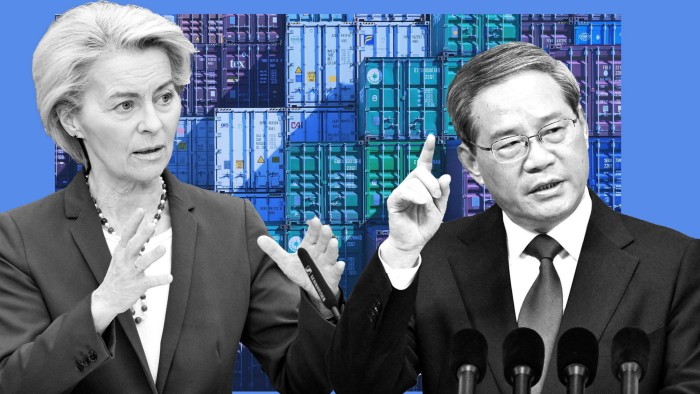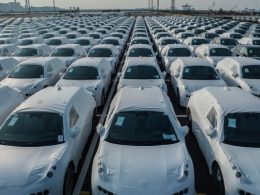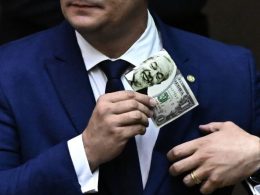Unlock the Editor’s Digest for free
Roula Khalaf, Editor of the FT, selects her favourite stories in this weekly newsletter.
The EU and China should work to reach a “negotiated resolution” to provide “stability and predictability” for the global economy in the face of US tariffs, European Commission president Ursula von der Leyen has said after a call with China’s Premier Li Qiang.
US President Donald Trump has roiled global financial markets with his announcement of sweeping tariffs, prompting China and the EU to table retaliatory measures that risk a full-blown global trade conflict.
Brussels officials want to ensure co-operation with Beijing as they aim to contain any escalation and limit the damage to the European economy, given the huge size of their respective markets and the large volumes of goods shipped between the EU, US and China.
Brussels is also fearful that Chinese exports diverted from the US by Trump’s measures could shift to the European market and exacerbate the economic pain for domestic manufacturers suffering from the tariffs.
“President von der Leyen called for a negotiated resolution to the current situation, emphasising the need to avoid further escalation,” the commission said in a statement following what it called her “constructive discussion” with Li on Tuesday.
The two leaders discussed “setting up a mechanism for tracking possible trade diversion and ensuring any developments are duly addressed”, the commission said. “President von der Leyen emphasised China’s critical role in addressing possible trade diversion caused by tariffs, especially in sectors already affected by global overcapacity.”
It added: “In response to the widespread disruption caused by the US tariffs, President von der Leyen stressed the responsibility of Europe and China, as two of world’s largest markets, to support a strong reformed trading system, free, fair and founded on a level playing field.”
China has been portraying itself as a bastion of stability in the global trading system, and experts in the country have called for Beijing to pursue agreements with countries other than the US.
But China’s huge trade surplus with the rest of the world, which reached nearly $1tn last year, has led to tensions not only with the US but increasingly with the EU and large developing countries.
The EU and other trading partners argue that Beijing is investing too much in manufacturing while not doing enough to stimulate domestic demand in China, which is suffering from a deep property slowdown.
Beijing, meanwhile, has accused the EU of being protectionist for imposing tariffs on imports of Chinese electric vehicles.
“Whether China-Europe relations can achieve greater development depends on both sides’ ability to meet halfway,” said the Global Times, a Chinese Communist party nationalist tabloid, in an editorial.
It said China had delayed for three months additional tariffs on French cognac that it had imposed in retaliation for the EU levies on Chinese EVs. But it said Europe continued “focusing on addressing its own concerns while inadequately considering China’s reasonable requests”.
Source link










